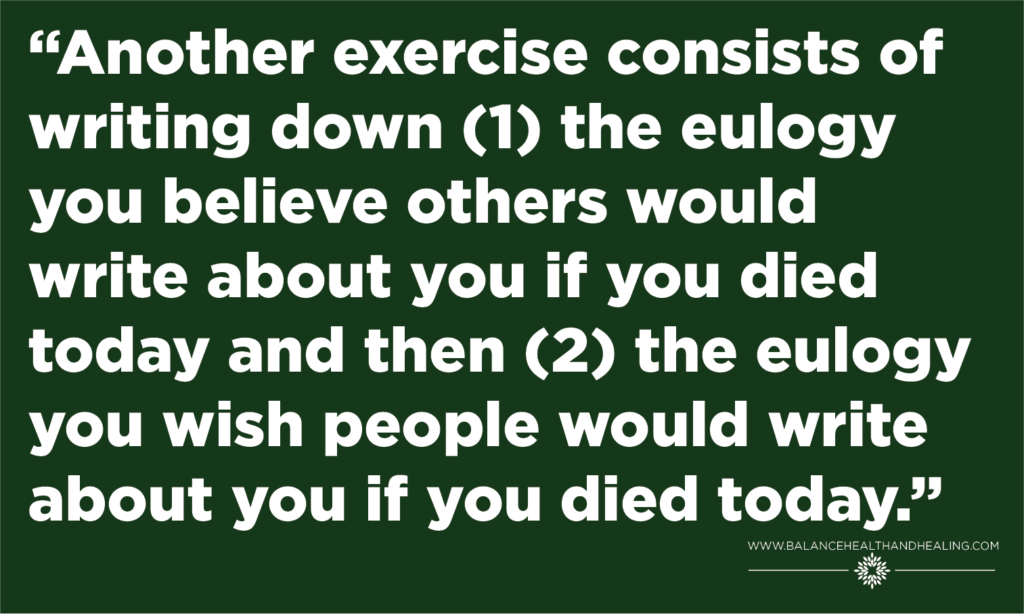On separate panels in our group room we have the words Pursue What Matters mounted to the wall. These words express the core aim for many therapists–to help clients live harmoniously with their values, to do what matters. It seems self-evident that it’s better to do what matters than to do what doesn’t matter. And yet many of us find ourselves spinning out, living days that feel dry of vitality and purpose. One of the first tasks I have as a therapist is to get clear on what matters to the client, which often consists of helping the client get clear on what matters to her or him. Even with a therapist’s guidance, clients struggle to identify what matters to them. This is for several reasons, not least of which is that what matters is a moving target.
What Matters is a Moving Target
What mattered to you when you were five-years-old, just starting kindergarten, is probably a lot different than what mattered to you when you were 20- and trying to figure out what to do with your life. What matters to new parents often looks very different from what matters to new retirees. As we age, it’s hard to find the common threads that connect our cares and motivations from year to year.
figure out what to do with your life. What matters to new parents often looks very different from what matters to new retirees. As we age, it’s hard to find the common threads that connect our cares and motivations from year to year.
The Things That Matter Conflict
Our values don’t always play nicely with one another, either. Let’s consider someone who values both freedom from pain and enjoying rich, vital relationships. There is nothing inherently conflictual in these values. But they contain the seeds of conflict, and they often compete. Opening ourselves up to caring about a partner, a close friend, or a family member opens us up to the possibility of painful loss. George Saunders, a fiction writer, reflected at a reading on how strange humans are–that we can care so much for one another despite knowing we and every person we care for will die. We are capable of giving safety more value than close bonds, but still many people don’t. Conflicts can also arise during phases of psychological distress. Many people in the throes of an eating disorder struggle with the conflict between the drive toward control or meeting some extreme appearance standard and their health and happiness. It is a normal part of many disorders to feel conflicted about what matters and where one should direct energy.
Brief Exercises to Figure Out What Matter
To get to the heart of some of your cares, you can consider a couple exercises. In one, write down a short paragraph about what matters most to you, what you would like your life to stand for and be about when all is said and done. Next, condense that paragraph into six words, however you’d like to arrange them. Call this your life’s (revisable) mission statement. Use this to reflect on what matters as you go about your day.
 Another exercise consists of writing down (1) the eulogy you believe others would write about you if you died today and then (2) the eulogy you wish people would write about you if you died today. Reflect on the differences and what you could do to bridge the gap. Finally, consider the lives of the people who impress and inspire you most. Figure out and write down what characterized their lives, as well as changes you could make in your life to emulate them more closely. As Uncle Iroh taught, “It is important to draw wisdom from many different places.”
Another exercise consists of writing down (1) the eulogy you believe others would write about you if you died today and then (2) the eulogy you wish people would write about you if you died today. Reflect on the differences and what you could do to bridge the gap. Finally, consider the lives of the people who impress and inspire you most. Figure out and write down what characterized their lives, as well as changes you could make in your life to emulate them more closely. As Uncle Iroh taught, “It is important to draw wisdom from many different places.”
Another strategy for identifying core values consists of searching for the principles underlying what has mattered to you at most stages of your life. Perhaps in kindergarten what mattered most was pleasing your teacher and parents. Perhaps in elementary and middle school it was making friends. In high school and college, it might have been finding a professional identity and life partner. Across these instances, you might notice that it always mattered to have a close group of people to whom you could be loyal in your actions. You might then identify loyalty, connection, or cohesion as core values and use those values to determine what matters to you in your day-to-day life. When it comes time to decide between the comfort and relaxation that comes from playing a game on your phone and the connective but energy-demanding playtime you could spend with your child, you will have a framework to draw from. You will be able to ask yourself, “What values would action x serve over value y?”
Pain as a Signpost
Although it’s natural to wish we didn’t have to feel pain, we can also use our pain to help pinpoint what we care about. Pain is, in other words, a signpost on the path to pursuing what matters. If I see someone who is shaken up by a breakup of divorce, it tells me that they care about something they’re losing–intimacy, closeness, commitment, connection. If they find a way to avoid the pain (e.g., via alcohol or entertainment), it’s much harder to read the signposts. Medical patients who lose the ability to feel pain experience massive complications. They lose fingers and toes. They often lose whole limbs, break bones, and lose buckets of blood due to injuries they don’t even notice. Pain sucks, and emotional pain arguably sucks the most. However, since it’s inevitable anyway, I recommend using it to shed light on what matters to you. What has hurt you in the past? What losses or disappointments left the deepest sting?
pursuing what matters. If I see someone who is shaken up by a breakup of divorce, it tells me that they care about something they’re losing–intimacy, closeness, commitment, connection. If they find a way to avoid the pain (e.g., via alcohol or entertainment), it’s much harder to read the signposts. Medical patients who lose the ability to feel pain experience massive complications. They lose fingers and toes. They often lose whole limbs, break bones, and lose buckets of blood due to injuries they don’t even notice. Pain sucks, and emotional pain arguably sucks the most. However, since it’s inevitable anyway, I recommend using it to shed light on what matters to you. What has hurt you in the past? What losses or disappointments left the deepest sting?
Conclusion
Identifying what matters is, of course, a lifelong and ever-shifting process. What I’ve tried to do here is provide some basic tools to help with the navigation. A compass won’t get you out of the woods by itself, but it sure can help when you’re turned around. Evidence suggests that the simple act of pausing to reflect on how and why we’re acting relieves symptoms of many psychological disorders and problematic behavioral patterns. Taking time to figure out what matters can act as a pause-and-reset. And any navigator knows it’s wiser to pause and get our bearings than it is to trudge with our heads down in what might be the wrong direction.

